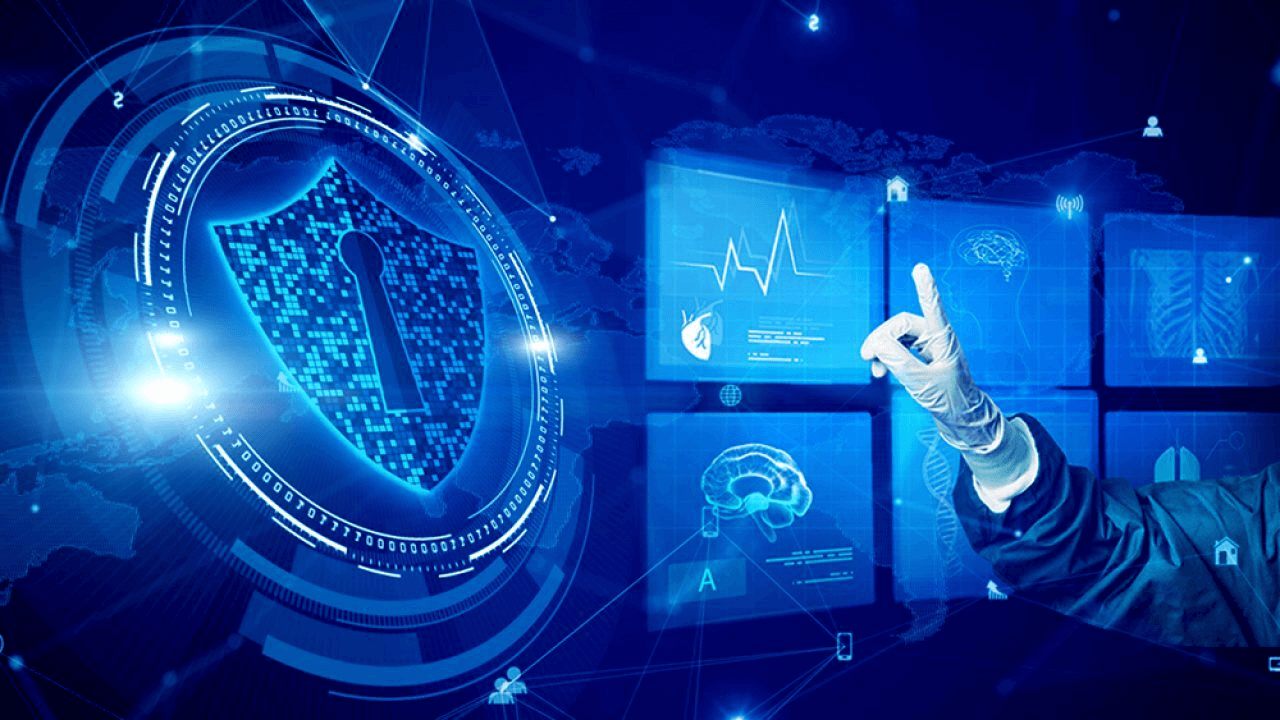Table of Contents
- Why Healthcare Desperately Needs Cybersecurity Certifications
- Unveiling the Key Features of Healthcare Cybersecurity Certification
- Navigating the Maze: A Guide to the Best Healthcare Cybersecurity Certifications
- The Tangible Benefits of Getting Certified: More Than Just a Piece of Paper
- Facts About Healthcare Cybersecurity: Beyond the Headlines
- Final Thoughts: Securing the Future of Healthcare, One Certification at a Time
- FAQ on Healthcare Cybersecurity Certification
Ever feel like your healthcare data is just floating out there in the digital ether, vulnerable to lurking cyber-villains? You’re not alone! As healthcare becomes increasingly reliant on technology, the need for robust cybersecurity measures has never been more critical. So, grab your virtual stethoscope, and let’s dive into the world of healthcare cybersecurity certifications – your first line of defense against the ever-evolving threat landscape!

The healthcare industry has undergone a monumental digital transformation over the past decade. We’ve witnessed the rise of electronic health records (EHRs), the expansion of telemedicine services, and the integration of countless smart devices into patient care. Technology is undeniably revolutionizing how healthcare is delivered, making it more efficient, accessible, and personalized.
However, this rapid digital evolution has also opened the floodgates to a surge in cyber threats. Healthcare organizations, laden with sensitive patient records and critical operational data, have become prime targets for cybercriminals. The stakes are incredibly high: a breach in this sector can lead to not only significant financial losses but also, more alarmingly, to the disruption of essential services and the potential compromise of patient safety.
This is precisely where healthcare cybersecurity certification steps in as a crucial safeguard. These certifications are designed to empower professionals with the knowledge, skills, and expertise needed to effectively combat the cybersecurity threats that are specific to the healthcare sector. They serve as a validation of competence, demonstrating a deep understanding of industry-specific risks and the ability to implement effective security measures. Furthermore, these certifications ensure compliance with stringent regulations such as HIPAA in the United States and GDPR in the European Union, thereby protecting organizations from hefty fines and reputational damage.
For individuals seeking to build a resilient and impactful career in this rapidly growing field, healthcare-focused certifications are the ultimate stepping stone. They provide a structured pathway to success, equipping professionals with the tools and knowledge necessary to excel in a demanding yet rewarding domain.
Why Healthcare Desperately Needs Cybersecurity Certifications

The healthcare industry occupies a uniquely vulnerable position in the digital world. Unlike other sectors where a cyberattack might primarily result in financial losses, a breach in healthcare can have life-threatening consequences. Disrupting critical services, compromising medical devices, or exposing sensitive patient information can directly jeopardize lives.
Healthcare cybersecurity certifications are therefore vital in equipping professionals with the necessary tools and knowledge to prevent and mitigate such breaches. Here’s a deeper dive into why these certifications are so crucial:
The Imperative Protection of Sensitive Data
Patient data ranks among the most sensitive information in existence. Electronic health records (EHRs) contain a wealth of personal details, including medical history, diagnoses, treatments, medications, and insurance information. The compromise of this data can have devastating consequences for patients, leading to identity theft, financial fraud, and even blackmail.
Certifications such as the Certified Healthcare Information Security Leader (CHISL) are specifically designed to focus on the protection of EHRs and other sensitive data. These programs provide professionals with the knowledge and skills necessary to implement robust security measures that safeguard patient privacy and confidentiality.
Navigating the Labyrinth of Regulatory Compliance

Healthcare organizations operate within a complex web of legal and regulatory frameworks. In the United States, the Health Insurance Portability and Accountability Act (HIPAA) sets stringent standards for the protection of patient health information. Similarly, in the European Union, the General Data Protection Regulation (GDPR) mandates strict data privacy and security requirements.
Failure to comply with these regulations can result in significant financial penalties and reputational damage. Healthcare cybersecurity certifications ensure that professionals are well-versed in the intricacies of these compliance requirements, enabling them to develop and implement effective strategies for adhering to the law.
The Relentless Battle Against Evolving Threats
The cyber threat landscape is in a perpetual state of evolution, with new and sophisticated attacks emerging constantly. From ransomware attacks that cripple hospital systems to phishing schemes that target patient portals, cybercriminals are relentlessly probing for vulnerabilities in healthcare networks.
Healthcare cybersecurity certifications play a vital role in keeping professionals updated on the latest threat landscapes and mitigation techniques. These programs provide ongoing training and education, ensuring that security professionals are equipped to defend against the ever-changing array of cyber threats.
The Soaring Demand for Skilled Professionals

The demand for cybersecurity professionals in the healthcare sector is growing at an unprecedented rate. Healthcare organizations are recognizing the critical need for trained specialists who possess a deep understanding of both IT security and the unique demands of healthcare environments.
By obtaining healthcare cybersecurity certifications, professionals can significantly enhance their career prospects and position themselves for success in this high-demand field.
Unlocking Career Advancement Opportunities
Healthcare professionals who are equipped with cybersecurity certifications often find themselves in a prime position to secure higher-paying roles and leadership positions. Credentials such as the ACSMI certification, for example, enable seamless transitions to executive positions by blending technical expertise with managerial training.
These certifications not only validate technical skills but also demonstrate a commitment to professional development and a deep understanding of the strategic importance of cybersecurity in healthcare.
Unveiling the Key Features of Healthcare Cybersecurity Certification

Healthcare cybersecurity certifications distinguish themselves from general IT security certifications through their specialized focus on the unique challenges and requirements of the healthcare industry. Here’s a closer look at some of the key features that define these programs:
A Laser Focus on Healthcare Systems
Unlike general IT security certifications that cover a broad range of topics, healthcare certifications delve deeply into the specific systems and technologies used in healthcare environments. This includes a thorough understanding of medical devices, electronic health records (EHRs), patient portals, and other industry-specific systems.
Immersive Real-World Training
Healthcare cybersecurity certifications emphasize hands-on training and simulations that mimic real-world healthcare cyber incidents. This approach ensures that graduates are job-ready and possess the practical skills needed to effectively respond to security threats in a healthcare setting. Programs such as the Certified Cybersecurity Practitioner for Healthcare (CCPH) prioritize practical skills over theoretical knowledge, ensuring that participants can immediately apply their learning in the workplace.

Tailored Multilevel Training Programs
Recognizing that individuals enter the field of healthcare cybersecurity with varying levels of experience, certification programs are designed to cater to all skill levels. Whether you’re a newcomer to cybersecurity or a seasoned IT professional transitioning into healthcare, you can find programs that match your specific needs and goals.
Cultivating Thought Leadership and Innovation
Healthcare cybersecurity certifications not only focus on current best practices but also foster innovation in addressing future challenges. Programs such as the ACSMI certification encourage participants to think critically, develop creative solutions, and contribute to the advancement of the field.
Achieving Global Recognition
Earning a healthcare cybersecurity certification expands global opportunities by demonstrating adherence to international industry standards and benchmarks. These certifications are recognized worldwide, enabling professionals to pursue career opportunities in healthcare organizations across the globe.
Navigating the Maze: A Guide to the Best Healthcare Cybersecurity Certifications
With a multitude of healthcare cybersecurity certifications available, choosing the right one can feel overwhelming. Here’s a breakdown of some of the best certifications, categorized by experience level:

Entry-Level Certifications: Building a Solid Foundation
Ideal for beginners, these programs introduce foundational concepts and tools used in healthcare cybersecurity:
-
CompTIA Security+: A widely recognized entry-level certification that covers essential security concepts and practices.
-
Certified Healthcare Cybersecurity Associate (CHCA): A certification specifically designed for individuals entering the field of healthcare cybersecurity.
-
EC-Council Certified Cybersecurity Technician (CCT): A foundational certification providing essential cybersecurity skills.
Intermediate Certifications: Specializing in Key Areas
For professionals who want to specialize in areas such as risk management or compliance:
-
Certified Information Systems Auditor (CISA): A certification for professionals who audit, control, monitor, and assess an organization’s information technology and business systems.
-
Certified in Healthcare Compliance (CHC): A certification for professionals who work to ensure compliance with healthcare regulations.
-
Certified Ethical Hacker (CEH): While not healthcare-specific, this certification provides valuable skills in penetration testing and vulnerability assessment.
Advanced Certifications: Aiming for Leadership
Targeted at experienced professionals aiming for leadership positions or deep specialization in healthcare cybersecurity:
-
Certified Information Security Manager (CISM): A certification for professionals who manage, design, oversee, and assess an organization’s information security.
-
Certified Information Systems Security Professional (CISSP): Another valuable certification for security managers.
-
ACSMI Certification: The ACSMI certification stands out due to its comprehensive curriculum, which encompasses governance, incident response, and strategic compliance management.
The ACSMI certification is particularly noteworthy for its comprehensive curriculum of over 400 modules, covering a wide range of topics, including governance, risk management, incident response, and strategic compliance management. This certification is designed to equip professionals with the skills and knowledge necessary to excel in leadership roles within healthcare cybersecurity.
The Tangible Benefits of Getting Certified: More Than Just a Piece of Paper
Earning a healthcare cybersecurity certification is not merely about adding another line to your resume. It’s about ensuring that your skillset aligns with the evolving demands of the healthcare industry and securing your position as a valuable asset within your organization. Here’s a closer look at the tangible benefits of certification:
A Significant Boost in Earning Potential
Healthcare cybersecurity specialists command significantly higher salaries than their uncertified counterparts. Advanced certifications often translate to salary increases of 20-40%, reflecting the high demand for skilled professionals in this field.
Unlocking Career Versatility
Certification opens doors to a diverse range of roles within healthcare cybersecurity, from penetration testing and vulnerability assessment to compliance consultation and security management. This versatility allows you to pivot your career in different directions and explore new areas of interest.
Staying Ahead of Emerging Threats
With constant updates and ongoing training, certifications help you stay one step ahead of cybercriminals who are constantly exploiting new vulnerabilities. This proactive approach to learning ensures that you’re always equipped to defend against the latest threats.
Making a Meaningful Contribution to Patient Safety
Protecting healthcare systems is about more than just regulatory compliance – it’s about preserving life-saving operations and maintaining patient trust. By preventing cyberattacks that could disrupt critical services or compromise patient data, you play a vital role in ensuring the safety and well-being of patients.
Joining a Vibrant Networking and Community
Certifications often provide access to industry-leading communities where you can connect with other professionals, share knowledge, and collaborate on projects. This networking can be invaluable for career advancement and professional development.

Facts About Healthcare Cybersecurity: Beyond the Headlines
-
Medical Devices as Entry Points: Pacemakers, insulin pumps, and other connected medical devices can be vulnerable to hacking, potentially endangering patients.
-
Insider Threats: A significant number of healthcare data breaches are caused by employees, either through negligence or malicious intent.
-
The Cost of a Breach: Healthcare data breaches are the most expensive across all industries, costing an average of $10.1 million per incident in 2022.
-
Ransomware’s Deadly Impact: Ransomware attacks have led to delays in patient care and even increased mortality rates.
-
Telemedicine Vulnerabilities: As telemedicine grows, so do the security risks, including eavesdropping and unauthorized access to virtual consultations.
-
Small Practices at Risk: Small and medium-sized healthcare practices are often the most vulnerable due to limited resources and expertise.
-
The Dark Web Market: Stolen medical records are highly valuable on the dark web, fetching higher prices than credit card information.
-
AI in Cybersecurity: Artificial intelligence is being used to detect and respond to cyber threats in healthcare, improving threat detection and response times.
-
Supply Chain Vulnerabilities: Third-party vendors and suppliers can introduce cybersecurity risks to healthcare organizations.
-
The Human Factor: Social engineering and phishing attacks remain highly effective, targeting human vulnerabilities to gain access to healthcare systems.
Final Thoughts: Securing the Future of Healthcare, One Certification at a Time
The healthcare sector stands at the forefront of the battle against escalating cyber threats. By obtaining a healthcare cybersecurity certification, you not only fortify your career but also play a vital role in protecting sensitive patient data and ensuring the resilience of critical healthcare operations.
Whether you’re a beginner exploring cybersecurity for the first time or a seasoned professional aiming for executive leadership, certifications like the ACSMI certification provide a structured pathway to success. With its 400+ modules, the ACSMI program exemplifies the dynamic, thorough training needed to excel in today’s evolving landscape. It’s equally important to stay updated with the latest cybersecurity trends and technologies, as threats in the healthcare sector evolve rapidly. Continuous learning and certification renewal are not just recommended but essential for maintaining a competitive edge in this high-stakes industry.
Beyond individual growth, certifications play an integral role in fostering a culture of security within healthcare organizations. Certified professionals bring a heightened awareness of cyber risks and lead efforts to build robust defenses. This not only protects patient data but also reinforces trust in healthcare services—a vital factor for organizations operating in such a sensitive and critical domain.
Ready to take the leap and become a champion of healthcare cybersecurity? Explore the comprehensive Cybersecurity Certification we have at ACSMI and embark on a journey towards a more secure and rewarding future!
FAQ on Healthcare Cybersecurity Certification

What exactly is healthcare cybersecurity certification?
Healthcare cybersecurity certification is a specialized credential designed to equip cybersecurity professionals with the specific skills and knowledge needed to safeguard healthcare organizations against digital threats. It validates expertise in protecting sensitive patient data, ensuring regulatory compliance, and mitigating industry-specific risks.
Why is healthcare cybersecurity so critical in today’s digital landscape?
Healthcare cybersecurity is critical because it directly protects sensitive patient data and ensures the uninterrupted operation of essential healthcare services. A breach in this sector can have life-threatening consequences, making cybersecurity a top priority for healthcare organizations.
I’m a beginner – which certification is the ideal starting point for me?
If you’re new to the field, CompTIA Security+ or Certified Healthcare Cybersecurity Associate (CHCA) are excellent starting points. These certifications provide a solid foundation in essential security concepts and practices, preparing you for more advanced training.
What makes the ACSMI certification stand out from the crowd?
The ACSMI certification distinguishes itself through its comprehensive curriculum of over 400 modules, offering unmatched depth and breadth in healthcare cybersecurity. It covers a wide range of topics, from governance and risk management to incident response and strategic compliance management, equipping professionals with the skills needed to excel in leadership roles.
How often should I renew my certifications to stay current?
Most certifications, including CHC and ACSMI, require renewal every 2-3 years through continuing education or retesting. This ensures that professionals stay updated on the latest cybersecurity trends and technologies, maintaining a competitive edge in this rapidly evolving field.
Are healthcare cybersecurity certifications recognized internationally?
Yes, many healthcare cybersecurity certifications are recognized globally, demonstrating adherence to international industry standards and benchmarks. This recognition expands career opportunities and enables professionals to pursue roles in healthcare organizations across the world.
How can I convince my organization to invest in healthcare cybersecurity certifications for its employees?
Highlight the tangible benefits of certification, such as reduced risk of data breaches, improved regulatory compliance, and enhanced reputation. Emphasize the potential cost savings associated with preventing cyberattacks, as well as the increased productivity and efficiency that can result from a more secure IT environment.
What are the key skills and competencies that healthcare cybersecurity certifications aim to develop?
Healthcare cybersecurity certifications aim to develop a wide range of skills and competencies, including risk assessment, vulnerability management, incident response, security awareness training, and regulatory compliance. These programs equip professionals with the knowledge and abilities needed to effectively protect healthcare organizations from cyber threats.

Leave a Reply